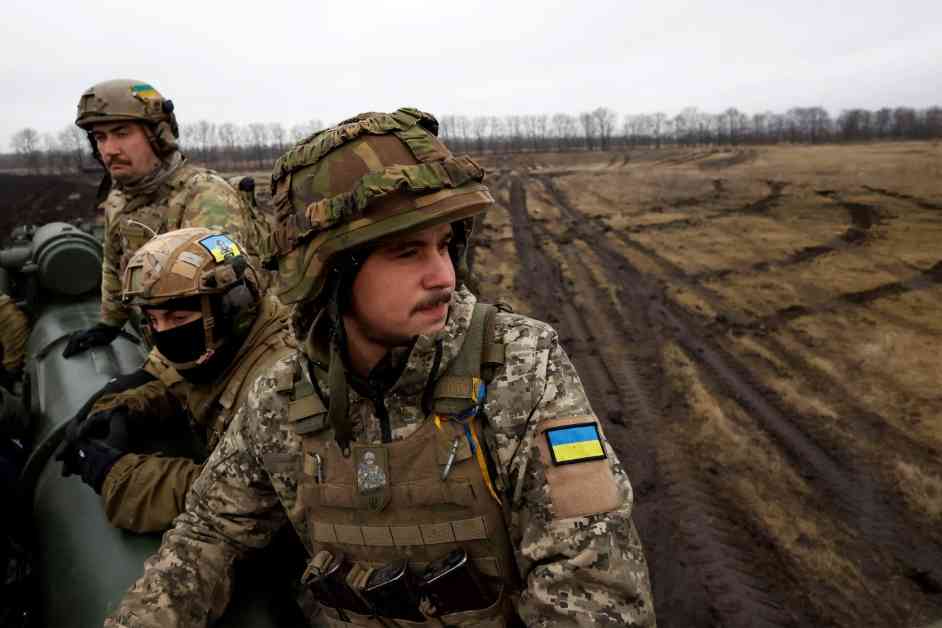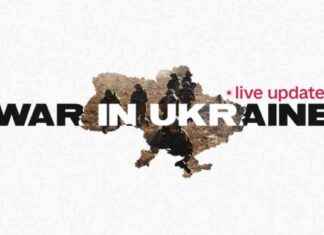The recent survey conducted by the Kyiv International Institute of Sociology (KIIS) reveals a concerning trend among Ukrainians regarding their views on Russia’s intentions for the state. The survey, which interviewed 1,029 respondents aged 18 and older across all Ukrainian government-controlled oblasts between February 14 and March 4, 2025, indicates that a significant majority of Ukrainians are deeply apprehensive about Russia’s motives.
The survey findings paint a stark picture – about 66% of Ukrainians believe that Russia is actively seeking to destroy Ukraine, with no intentions of halting its aggression at the territories it currently occupies. This sentiment is echoed by a staggering 87% of respondents who believe that Russia plans to continue its hostile actions beyond the areas it currently controls.
Delving deeper into the survey results, it becomes evident that the Ukrainian populace perceives Russia’s goals with alarming clarity. A vast majority, 66% to be precise, believe that Russia’s primary objective is the annihilation of Ukraine and its people. This belief is further divided into two distinct categories – 28% of respondents think that Russia aims to commit physical genocide against Ukrainians, while 38% believe that Russia intends to seize a significant portion, if not all, of Ukraine’s territory to obliterate its statehood and nationhood.
Regional differences in opinion exist but do not diminish the overarching consensus. The survey indicates that between 80% in the east and south of Ukraine and 89-90% in the west and center agree that Russia’s ambitions extend far beyond the current front lines. These findings align closely with statements made by Russia’s Defense Minister Andrei Belousov, who declared in December 2024 that Moscow’s objective was to capture four Ukrainian oblasts within the year.
Interestingly, only a small fraction of respondents, 4%, believe that Russia’s goal is to maintain control over its existing territorial gains. A mere 3% accept Russia’s assertion that it seeks to “denazify” and demilitarize Ukraine, while the remaining 7% remain undecided on the matter.
The implications of these survey results are crucial, as they shed light on the mindset of the Ukrainian population in the face of ongoing geopolitical tensions. The KIIS notes that the higher the perceived threat among Ukrainians, the more willing they are to continue resisting and rejecting any unacceptable demands placed upon them.
In a world increasingly defined by political uncertainty and conflicting interests, the fears and apprehensions of everyday citizens play a significant role in shaping the course of events. As Ukrainians grapple with the specter of Russian aggression looming over their nation, their resilience and determination to safeguard their sovereignty become more pronounced than ever.
As the survey results underscore, the stakes are high, and the future remains uncertain. The voices of the Ukrainian people serve as a poignant reminder of the enduring human spirit in the face of adversity, a spirit that refuses to be silenced or subdued by external threats. In the heart of Ukraine beats a resilient nation, united in purpose and unwavering in its commitment to defend its freedoms and independence.
The survey results offer a sobering reflection of the current state of affairs, highlighting the challenges that lie ahead for Ukraine and its people. In a world fraught with tensions and uncertainties, the courage and fortitude of the Ukrainian populace stand as a beacon of hope and resilience, a testament to the enduring strength of the human spirit in the face of adversity.

















